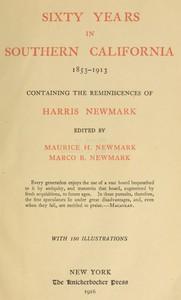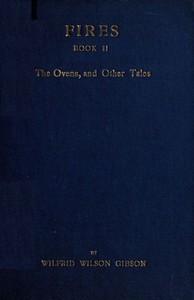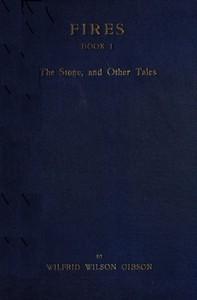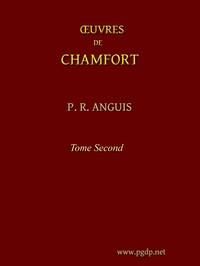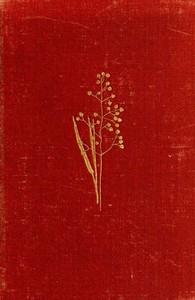|
|
Read this ebook for free! No credit card needed, absolutely nothing to pay.Words: 226304 in 122 pages
This is an ebook sharing website. You can read the uploaded ebooks for free here. No credit cards needed, nothing to pay. If you want to own a digital copy of the ebook, or want to read offline with your favorite ebook-reader, then you can choose to buy and download the ebook.

: Sixty Years in Southern California 1853-1913 Containing the Reminiscences of Harris Newmark by Newmark Harris Worden J Perry Contributor Newmark Marco Ross Editor Newmark Maurice Harris Editor - Los Angeles (Calif.); California Southern@FreeBooksWed 07 Jun, 2023 f English was somewhat of a handicap; but youth and energy were in my favor, and an eager desire to succeed overcame all obstacles. Upon computing my worldly possessions, I found that I had saved nearly two hundred and forty dollars, the sum total of my eight months' wages; and this sum I invested in my first venture. My brother, J. P. Newmark, opened a credit for me, which contributed materially to my success; and I rented the store on the north side of Commercial Street, about one hundred feet west of Los Angeles, owned by Mateo Keller and just vacated by Prudent Beaudry. Little did I think, in so doing, that, twelve years later, some Nemesis would cause Beaudry to sell out to me. I fully realized the importance of succeeding in my initial effort, and this requited me for seven months of sacrifices, until January 1st, 1855, when I took an inventory and found a net profit of fifteen hundred dollars. To give some idea of what was then required to attain such success, I may say that, having no assistance at all, I was absolutely a prisoner from early morning until late in the evening--the usual hour of closing, as I have elsewhere explained, being eight o'clock. From sweeping out to keeping books, I attended to all my own work; and since I neither wished to go out and lock up nor leave my stock long unprotected, I remained on guard all day, giving the closest possible attention to my little store. Business conditions in the fifties were necessarily very different from what they are to-day. There was no bank in Los Angeles for some years, although Downey and one or two others may have had some kind of a safe. People generally hoarded their cash in deep, narrow buckskin bags, hiding it behind merchandise on the shelves until the departure of a steamer for San Francisco, or turning it into such vouchers as were negotiable and could be obtained here. John Temple, who had a ranch or two in the North , generally had a large reserve of cash to his credit with butchers or bankers in the Northern city, and he was thus able to issue drafts against his balances there; being glad enough to make the exchange, free of cost. When, however, Temple had exhausted his cash, the would-be remitter was compelled to send the coin itself by express. He would then take the specie to the company's agent; and the latter, in his presence, would do it up in a sealed package and charge one dollar a hundred for safe transmission. No wonder, therefore, that people found expressing coin somewhat expensive, and were more partial to the other method. In the beginning of the fifties, too, silver was irregular in supply. Nevada's treasures still lay undiscovered within the bowels of the earth, and much foreign coin was in use here, leading the shrewdest operators to import silver money from France, Spain, Mexico and other countries. The size of coins, rather than their intrinsic value, was then the standard. For example, a five-franc piece, a Mexican dollar or a coin of similar size from any other country passed for a dollar here; while a Mexican twenty-five-cent piece, worth but fourteen cents, was accepted for an American quarter, so that these importers did a "land-office" business. Half-dollars and their equivalents were very scarce; and these coins being in great demand among gamblers, it often happened that they would absorb the supply. This forced such a premium that eighteen dollars in silver would commonly bring twenty dollars in gold. Most of the output of the mines of Southern California--then rated as the best dust--went to San Francisco assayers, who minted it into octagonal and round pieces known as slugs. Among those issuing privately-stamped coins were J. S. Ormsby and Augustus Humbert, both of whom circulated eight-cornered ingots; and Wass Molitor & Co., whose slugs were always round. Pieces of the value of from one to twenty-five dollars, and even miniature coins for fractional parts of a dollar, were also minted; while F. D. Kohler, the State Assayer, made an oblong ingot worth about fifty dollars. Some of the other important assaying concerns were Moffatt & Co., Kellogg & Co. and Templeton Reid. Baldwin & Co. was another firm which issued coins of smaller denomination; and to this firm belonged David Colbert Broderick, who was killed by Terry. For at least twenty years after I arrived in Los Angeles, the credit system was so irregular as to be no system at all. Land and other values were exceedingly low, there was not much ready money, and while the credit of a large rancher was small compared with what his rating would be today because of the tremendous advances in land and stock, much longer time was then given on running accounts than would be allowed now. Bills were generally settled after the harvest. The wine-grower would pay his score when the grape crop was sold; and the cattleman would liquidate what he could when he sold his cattle. In other words, there was no credit foundation whatever; indeed, I have known accounts to be carried through three and four dry seasons. It is true, also, that many a fine property was lost through the mania of the Californian for gambling, and it might be just as well to add that the loose credit system ruined many. I believe, in fact, it is generally recognized in certain lines of business that the too flexible local fiscal practice of to-day is the descendant of the careless methods of the past. This proneness to steal was frequently utilized by early and astute traders, who kept on hand a stock of very cheap but gaudy jewelry which was placed on the counter within easy reach--a device which prevented the filching of more valuable articles, while it attracted, at the same time, this class of customers; and as soon as the esteemed customers ceased to buy, the trays of tempting trinkets were removed. Shyness of the truth was another characteristic of many a native that often had to be reckoned with by merchants wishing to accommodate, as far as possible, while avoiding loss. One day in 1854, a middle-aged Indian related to me that his mother had suddenly died, and that he would like some candles, for which he was unable to pay, to place around the bed holding the remains of the departed. I could not refuse this filial request, and straightway gave him the wax tapers which were to be used for so holy a purpose. The following day, however, I met the old woman on the street and she was as lively a corpse as one might ever expect to see; leaving me to conclude that she was lighted to her room, the previous night, by one of the very candles supposed to be then lighting her to eternity. The fact that I used to order straw hats which came telescoped in dozens and were of the same pattern , recalls an amusing incident showing the modesty of the times, at least in the style of ladies' bonnets. S. Lazard & Company once made an importation of Leghorn hats which, when they arrived, were found to be all trimmed alike--a bit of ribbon and a little bunch of artificial flowers in front being their only ornamentation! Practically, all the fair damsels and matrons of the town were limited, for the season, to this supply--a fact that was patent enough, a few days later, at a picnic held at Sainsevain's favorite vineyard and well patronized by the feminine leaders in our little world. Henry Mellus, brother of Francis Mellus, to whom I elsewhere more fully refer, who had returned to New England, was among us again in 1854. Whether this was the occasion of Mellus's unfortunate investment, or not, I cannot say; but on one of his trips to the East, he lost a quarter of a million through an unlucky investment in iron. Jean B. Trudell , for a short time in partnership with S. Lazard, was an old-timer who married Anita, the widow of Henry Mellus; and through this union a large family resulted. He conducted salt works, from which he supplied the town with all grades of cheap salt; and he stood well in the community. Mrs. Trudell took care of her aunt, Mrs. Bell, during her later years. The pueblo was so small in the fifties, and the number of white people so limited that, whenever a newcomer arrived, it caused considerable general excitement; and when it infrequently happened that persons of note came for even a single night, a deputation of prominent citizens made their short stay both noisy with cannonading and tiresome with spread-eagle oratory. Free books android app tbrJar TBR JAR Read Free books online gutenberg More posts by @FreeBooks
: Fires - Book 2: The Ovens and Other Tales by Gibson Wilfrid Wilson - English poetry; Stories in rhyme@FreeBooksWed 07 Jun, 2023

: Fires - Book 1: The Stone and Other Tales by Gibson Wilfrid Wilson - English poetry; Stories in rhyme@FreeBooksWed 07 Jun, 2023
|
Terms of Use Stock Market News! © gutenberg.org.in2025 All Rights reserved.

